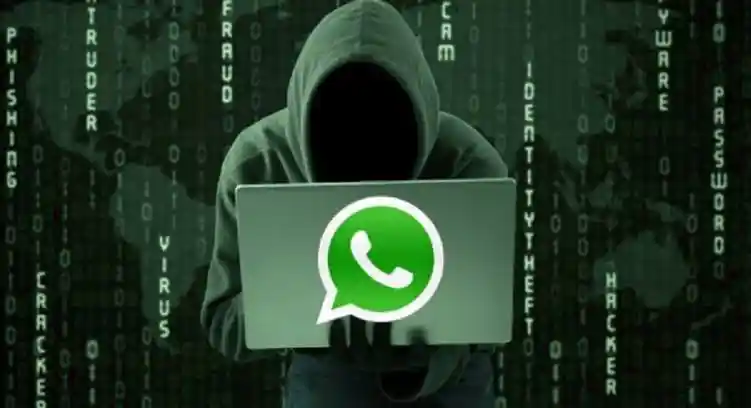WhatsApp, the world’s most popular messaging app, has been hacked in a sophisticated cyberattack that targeted journalists, activists, and civil society members worldwide. The breach, linked to Israeli spyware developed by Paragon Solutions, exploited a zero-click vulnerability, allowing hackers to access user data without any interaction.
With over 2 billion users, WhatsApp is a critical communication tool. This breach raises concerns about privacy, data security, and online safety. In this article, we will break down the latest WhatsApp hacking news, explain how the attack happened, discuss Meta’s response, and provide essential steps to protect your account.
If you use WhatsApp, this guide will help you stay informed, secure your account, and avoid potential cyber threats.
What Happened? The WhatsApp Hack Explained
The WhatsApp hack was a targeted cyberattack that used advanced spyware to compromise the phones of journalists, human rights activists, and civil society members. The attack was discovered in December 2024 and has since raised global concerns over cybersecurity.
Key Details of the WhatsApp Hack:
| Category | Details |
|---|---|
| Date of Attack | December 2024 |
| Method Used | Zero-click spyware attack |
| Targeted Users | Journalists, activists, and civil society members |
| Spyware Developer | Paragon Solutions (Israeli firm) |
| Affected Countries | Over 20 nations worldwide |
How Did the Hack Happen?
Unlike traditional phishing attacks that require users to click a link or download a file, this attack used zero-click spyware. This means that victims did not have to do anything for their phones to be compromised.
Here’s how the attack unfolded:
- Hackers exploited a vulnerability in WhatsApp’s system to install spyware remotely.
- The spyware gained full access to user data, including messages, call logs, and personal files.
- Hackers could eavesdrop on conversations, track movements, and extract sensitive information.
- The attack was silent, meaning victims had no idea their devices were compromised.
Meta (WhatsApp’s parent company) has since intervened, blocking the attack and taking legal action against Paragon Solutions.
How to Check If Your WhatsApp Was Hacked
If you suspect that your WhatsApp account has been compromised, look for these warning signs:
- Unexpected logouts – If WhatsApp repeatedly asks you to reverify your number, this could be a sign that someone else is trying to access your account.
- Messages you didn’t send – If your contacts receive messages from you that you didn’t write, your account may be compromised.
- Battery drains quickly – Spyware operates in the background, consuming battery life at an unusual rate.
- Unusual background noise during calls – Hackers listening to your calls might cause slight audio interference.
- Unknown linked devices – Check your WhatsApp Web or Linked Devices settings for any suspicious logins.
If any of these signs appear, take immediate action to secure your account.
How to Secure Your WhatsApp Account from Hackers
To protect your WhatsApp account from cyberattacks, follow these security measures:
1. Enable Two-Step Verification
- Go to Settings > Account > Two-step verification.
- Set a 6-digit PIN that will be required when logging into WhatsApp on a new device.
- This prevents unauthorized access, even if hackers obtain your verification code.
2. Log Out of Unknown Devices
- Navigate to Settings > Linked Devices.
- If you see a device that you don’t recognize, log it out immediately.
3. Update WhatsApp Regularly
- Always keep WhatsApp updated to ensure you have the latest security patches.
- Enable automatic updates in your app store to stay protected.
4. Be Cautious of Suspicious Links
- Do not click on unknown links, even if they come from friends or family.
- Hackers often use compromised accounts to send malware links to contacts.
5. Use a Secure Lock for WhatsApp
- Enable fingerprint or face ID lock to prevent unauthorized access to your chats.
- Go to Settings > Privacy > Fingerprint Lock to enable this feature.
By following these steps, you can greatly reduce the risk of getting hacked and keep your data secure.
WhatsApp’s Response & Legal Action
After discovering the attack, Meta took several measures to mitigate the damage:
- They sent security alerts to affected users, notifying them of potential compromise.
- WhatsApp issued a cease-and-desist letter to Paragon Solutions, demanding an immediate halt to their hacking operations.
- Legal action is being considered to hold those responsible accountable.
Despite these efforts, cybersecurity experts warn that similar attacks could happen again, urging users to take proactive security measures.
The Rise of Spyware: Why You Should Be Concerned
Spyware attacks are becoming more sophisticated and frequent, targeting not just governments and corporations but individual users.
How Spyware Works
- Spyware can be installed through malicious links, fake apps, or software vulnerabilities.
- Once installed, it can steal personal information, including passwords, messages, and financial data.
- Advanced spyware can turn on your microphone and camera without your knowledge.
Who Is at Risk?
- Journalists & Activists: Often targeted due to their sensitive work.
- High-profile Individuals: Celebrities, politicians, and executives are common targets.
- Everyday Users: Hackers can target anyone for financial scams or identity theft.
This is why it’s essential to stay vigilant and implement strong security measures on all digital platforms.
Frequently Asked Questions (FAQs)
1. Was WhatsApp recently targeted by spyware?
Yes, WhatsApp was targeted in a cyberattack in December 2024, affecting users worldwide.
2. How did hackers access WhatsApp accounts?
The attack used zero-click spyware, meaning victims didn’t need to click on anything for their devices to be compromised.
3. Can I check if my WhatsApp is hacked?
Yes, look for unexpected logouts, strange messages, and excessive battery drain as warning signs.
4. What should I do if my WhatsApp is hacked?
- Log out of all devices
- Enable two-step verification
- Reinstall WhatsApp
- Report the issue to WhatsApp support
5. Is WhatsApp still safe to use?
Yes, but users should update the app regularly and follow strong security measures to stay protected.
Conclusion: Stay Alert & Protect Your Privacy
The WhatsApp hacking incident is a wake-up call for users to take cybersecurity seriously. While Meta has taken steps to block the attack, similar threats may arise in the future.
If you are a WhatsApp user, take steps to protect your account by enabling two-step verification, logging out of unknown devices, and keeping your app updated.
By staying informed and adopting good security practices, you can protect your privacy, personal data, and digital identity.
Don’t wait until it’s too late! Secure your WhatsApp account today and share this article with your contacts to help them stay safe.
For more cybersecurity updates, follow our blog and stay informed on the latest digital threats. Also read How to Ship Any Car to Nigeria: A Detailed Guide on Costs and Processes.







